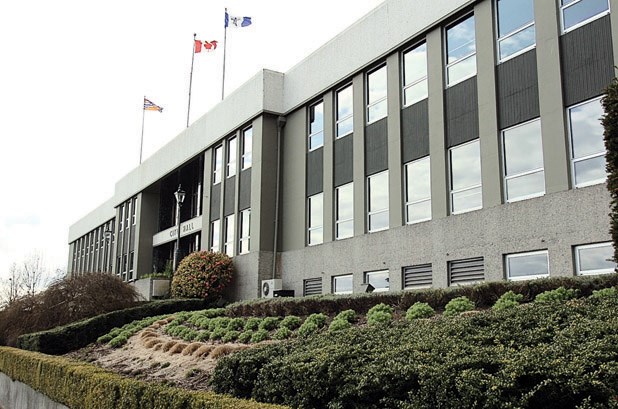New Westminster residents are facing hikes to water, sewer, solid waste and electrical services in 2014.
In the coming year, electrical rates are expected to increase by seven per cent in 2014, water rates will rise by six per cent, sewer rates will grow by 8.5 per cent and solid waste rates will nudge up by one per cent.
Gary Holowatiuk, the city’s director of finance and information technology, said the rates need to be in place so they can take effect on Jan. 1, 2014. He said the utility budgets reflect “significant” increases from service providers such as B.C. Hydro and costs of replacing aging infrastructure, which is something that comes with being one of the oldest municipalities in British Columbia.
New Westminster, the only municipality in the Lower Mainland that owns and operates an electrical distribution system, is proposing seven per cent increases in electrical utility rates. Holowatiuk said those are “identical” to increases the city faces from B.C. Hydro. The electrical utility has a $41 million budget for 2014, including $25 million to purchase electricity at a wholesale rate from B.C. Hydro. The budget also includes funds for salaries, materials and supplies, contract services, as well as contributions to electrical utility reserves and transfers to the city’s general operations and capital reserves.
Holowatiuk said New Westminster still has one of the lowest electrical utility fees in North America.
Catalin Dobrescu, utilities and special projects engineer, said the proposed six per cent increase in the water rates means homeowners will pay $24 more in 2014 than in 2013.
A staff report states that the water utility costs are expected to rise from six to 8.5 per cent in the years ahead, which is attributed to increased cost to buy bulk water from Metro Vancouver and to invest in capital infrastructure.
“We have an aging infrastructure,” he said. “That is improving slowly over the years, but it is still a challenge.”
On the sewage front, the city faces challenges related to the accelerated plan for sewer treatment plant construction, investments to deal with aging infrastructure and increased reporting requirements under the integrated liquid waste and resource management plan.
Dobrescu told council that the city now requires storm sewer separation on private property for new developments and homes doing $100,000 in renovations within a five-year period.
“We have to entice homeowners to separate their sewers on the private property side,” he said.
Instead of a combined sewer system, storm water and sanitary systems would be separated.
Dobrescu said “a good amount of housing stock” gets renewed over the years, at which time redevelopment would create opportunities to separate sewers.
Mayor Wayne Wright said that’s something the city will have to keep in mind when discussing heritage properties, as many of those renovations could exceed $100,000 during a five-year period.
Kristian Davis, supervisor of solid waste and recycling, said the one per cent increase to the solid waste utility in 2014 represents a $2 increase per household. The utility is projecting higher increases in 2017, when it must replace three of its automated garbage/recycling trucks.



